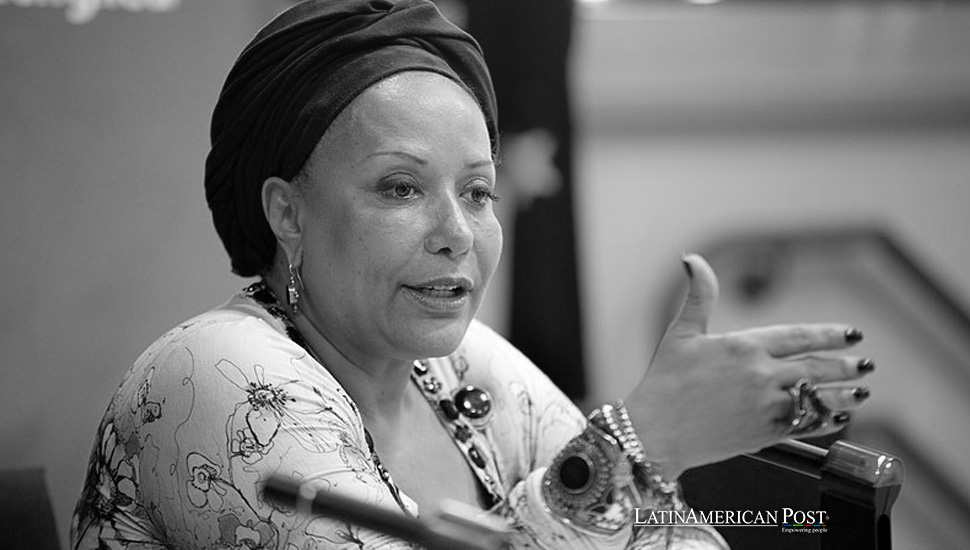Piedad Córdoba: A Life of Controversy and Advocacy in Colombian Politics

Piedad Córdoba, the Colombian senator whose life was as colorful and controversial as the turbans she famously wore, passed away at 68, leaving behind a complex legacy. Her death, confirmed by President Gustavo Petro, brings to an end a career that was as much a source of division as it was a symbol of steadfast commitment to leftist ideals in a predominantly conservative country.
Champion of Afro-Colombian Rights
Born in Medellin, Córdoba was a vivid figure in Colombian politics, known for her outspoken defense of Afro-Colombians’ rights and her contentious role as an intermediary to leftist rebel groups. Her work, while championing the cause of democracy, was not without its critics. Some viewed her as a beacon of hope in a country rife with inequality and violence. In contrast, others criticized her for what they saw as an overly sympathetic stance towards rebel factions, raising questions about possible corruption and the ethics of her methods.
Córdoba’s journey in politics was set against the backdrop of Colombia’s tumultuous history, a nation marred by decades of civil conflict, where left-wing guerrilla groups like the Revolutionary Armed Forces of Colombia (FARC) and the National Liberation Army (ELN) waged a prolonged insurgency against the state. Her engagement with these groups, particularly in her role as a mediator in hostage negotiations, was seen by many as a brave stand against a violent status quo. However, her critics accused her of crossing a line from mediation to collaboration, casting a shadow over her intentions.
Ideological Clash
Her leftist views, while aligning with a global trend of rising left-wing populism, stood in stark contrast to Colombia’s traditional politics. With its history deeply rooted in conservative values, Colombia often found Córdoba’s ideologies and alignment with socialist ideals contentious. This ideological clash was not just a reflection of Córdoba’s politics but indicative of a broader divide within Colombian society, where issues of race, class, and political affiliation continue to foster deep divisions.
Córdoba’s advocacy for Afro-Colombian rights was another cornerstone of her political career. In a country where Afro-Colombians have often faced marginalization, her efforts to bring their struggles to the forefront were pioneering and provocative. Her insistence on highlighting racial inequalities, while commendable to her supporters, was seen by some as a divisive tactic, further polarizing an already fractured political landscape.
Córdoba faced numerous challenges throughout her career, including legal and political obstacles. Her involvement with FARC, particularly her alleged overstepping in negotiations, led to accusations of aiding and abetting a terrorist organization. These allegations, which Córdoba consistently denied, resulted in her temporary removal from the Senate in 2010, a decision that was both celebrated and condemned across Colombia’s political spectrum.
Unprecedented Impact
Despite these controversies, Córdoba’s impact on Colombian politics cannot be understated. Her death marks the end of an era for the country’s leftist movement, which has seen both a resurgence and a reevaluation in recent years. As Colombia grapples with the legacy of its civil conflict and the ongoing challenges of inequality and social justice, figures like Córdoba represent both the potential and the pitfalls of political activism in a deeply divided country.
Also read: Colombia Advances Peace Talks with FARC Dissidents, Eyes New Phase
In her passing, Córdoba leaves behind a complicated legacy. To her supporters, she was a fearless champion of the underrepresented, a woman who dared to stand up to the establishment and advocate for those on the margins of society. She was a divisive figure to her detractors, whose alignment with controversial groups and ideologies undermined her noble intentions. In both views, however, lies a shared recognition of her indelible mark on Colombian politics.
Piedad Córdoba’s life and career, enveloped in acclaim and criticism, reflect Colombia’s ongoing struggle to reconcile its turbulent past with a future that promises equality and justice for all its citizens. Her story is not just about the divisions she may have created or the controversies she sparked but also about the broader conversation she stimulated about democracy, representation, and the role of political activism in shaping a nation’s destiny.





